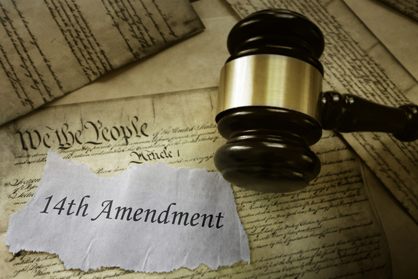Summary: Manhattan patent attorney Jacob Zappin was disbarred over his actions during his divorce and custody case, which turned ugly.
A Manhattan attorney has been disbarred after displaying a history of “egregious and outrageous” behavior during his divorce and child custody proceedings. The state appeals court decided to disbar Jacob Zappin in order to protect the public, according to Law.com.
Zappin, a former associate at Mintz, Levin, Cohn, Ferris, Glovsky, and Popeo, was lashing out for years while he represented himself in his divorce from Claire Comfort, who is also an attorney. The matrimonial judge told the court that Zappin’s behavior knew no limits. The judge found that Zappin created a fake website attacking the judge who was representing the child in the custody case with derogatory comments, sent threatening text messages to Comfort, and accused his father-in-law of being a sexual predator that would hurt his infant son.
Zappin also pursued frivolous litigation against Comfort, her parents and her lawyers, trying to defame his son’s attorney, and even filed a police report accusing his wife of domestic violence against him. However, Zappin is the one who committed acts of physical violence towards his wife.
The court also found that Zappin gave false testimony, used altered text messages as evidence in the custody case, and used misleading expert-witness testimony. His actions showed disrespect repeatedly to the court and counsel, including ignoring the directives of three judges, two matrimonial justices, and a District of Columbia Superior Court judge.
Zappin, a Columbia Law School graduate, was a patent attorney admitted to the New York bar in 2011. While Zappin’s misconduct did not involve his clients, his actions as his own pro se lawyer were out of control. Even up until the unanimous Appellate Division, First Department, panel made the ruling, Zappin was fighting judges and the courts at every opportunity, including to the First Department.
He accused the First Department justices of having conflicts of interest, requested sanctions against the committee’s counsel, and accused the Attorney Grievance Committee seeking his disbarment of fraud. All of his allegations were found to be baseless, so the panel denied his motions to have a 2016 order against him of professional misconduct dismissed and a referee report against him by the grievance committee be removed.
The justices – Rolando Acosta, Rosalyn Richter, Troy Webber, Sallie Manzanet-Daniels, and Marcy Kahn – noted that Zappin’s unwillingness to admit his wrongs was a big factor in their decision to disbar him. The panel wrote, “Notwithstanding the repeated acts of egregious misconduct respondent has committed over the course of several years, he has neither demonstrated any remorse nor any acceptance of responsibility for his intolerable actions.”
Manhattan Supreme Court Justice Matthew Cooper gave Zappin $10,000 in sanctions in 2016 for his misconduct. Zappin, who now lives in West Virginia and is admitted to practice in the state, tried to turn around and sue Cooper in federal court but was unsuccessful.
Zappin is still fighting back, telling the legal journal that the ruling “is one of the most corrupt and retaliatory decisions ever issued by any court.” He alleges the ruling of retaliation and that the judges made a mistake, using false reports to make their decision. He added, “I intend to appeal and continue to fight in federal court, while keeping my website up-to-date with new filings.”
Do you think Zappin’s conduct warranted disbarment? Share your thoughts with us in the comments below.
To learn more about attorney’s in divorce and custody battles, read these articles:
- Divorce of Two Attorneys Full of Claims of Missing Money
- Lesbian Attorney Who Won Custody of Daughter Now Disbarred
- Attorney Sanctioned in His Own Divorce
Photo: newyorkpost.com






































